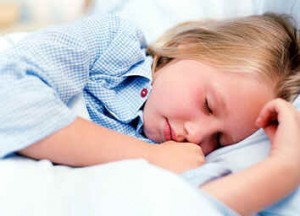Dr. Vivek Sharma
 “The Smith’s dog sleeps at the noise of the hammer, and wakes at the grinding of teeth.”
“The Smith’s dog sleeps at the noise of the hammer, and wakes at the grinding of teeth.”
~ Unknown
Sleep bruxism is an involuntary mandibular momvement with tooth grinding during sleep. The prevalence of sleep bruxism in children is high. Approximately 35% of children grind their teeth and this may lead to frequent arousals with altered day time functioning.
Bruxism comes from a greek word “bry chin”, which means to gnash the teeth. It begins in the first 5 years of life. Children who grind their teeth tend to do so at two peak times – when their baby teeth emerge and when their permanent teeth come in. Most children lose the teeth grinding habits after these two sets of teeth have come in.
Why does my child grind his teeth
Certain factors are responsible for bruxism.
* It is associated with day time anxiety & stress.
* Improperly aligned teeth or irregular contact between upper and lower teeth.
* Chronic illnesses in children.
* Medical conditions e.g. nutritional deficiencies, allergies, hormonal disorder, dehydration etc.
MYTHS
Bruxism while sleeping is a serious sleep disorder which needs early attention. There are number of myths related to Bruxism. Some of the say them worms cause this disorder while other stories that abound tell of young children recalling experiences of previous births. All these tales have no scientific bases and are more of grandmother stories.
Is it Bad for my child?
In most cases, teeth grinding isn’t harmful. It is very unlikely that your preschooler is doing any damage to his teeth, and its very likely that he will soon outgrow the habit. However, teeth grinding can cause jaw pain, headaches, wear on the teeth and temperomandilular joint damage. Untreated bruxism may create problem with dental occlusion. Persistent Bruxism requires dental treatment and may present as muscular or temperomandibular joint pain.
Can I do anything to help my Child?
Some tips to prevent teeth grinding and helping the child find ways to reduce anxiety and help in overcoming the problem.
* Bed time can be made more enjoyable.
* Child can be relieved by reading or talking to him.
* Permitting review of fears or angers experienced during the day.
* Praise and other emotional support are useful at these times.
* Make sure your childs’ diet include plenty of water. Dehydration may be harmful.
” Avoid or cut back on foods and chinks that contain caffeine, such as colas, chocolate, coffee.
* Do not chew on pencils or pens or anything that is not food. Avoid chewing gum as it allows your joint muscles to get more used to clenching and makes you more likely to grind your teeth.
* Train your self not to clench or grind your teeth. If you notice that you clinch or grind during day, position the top of your tongue between your teeth. This practice trains your joint muscles to relax.
The fact remains that bruxism is a worrying sleep disorder that must be treated with affection, care and if required with consultation of a doctor.
(The writer is consultant Paediatrician based in Jaipur and can be contacted at drvivek_sharma@rediffmail.com)
Trending Now
E-Paper

